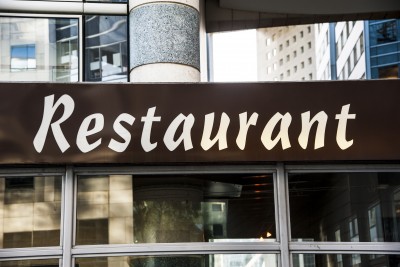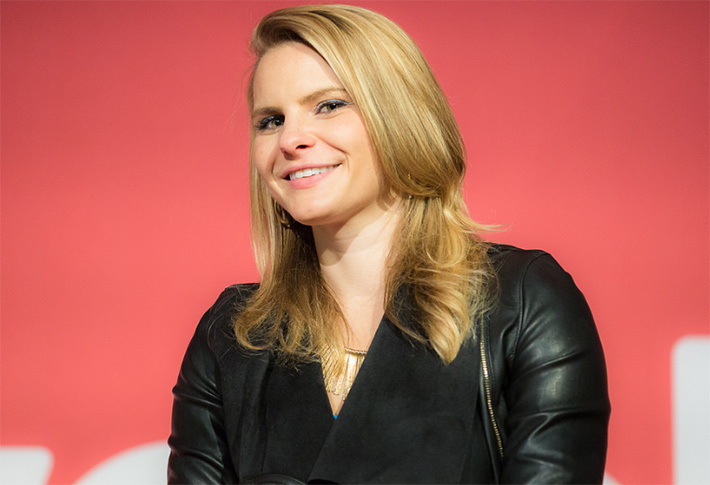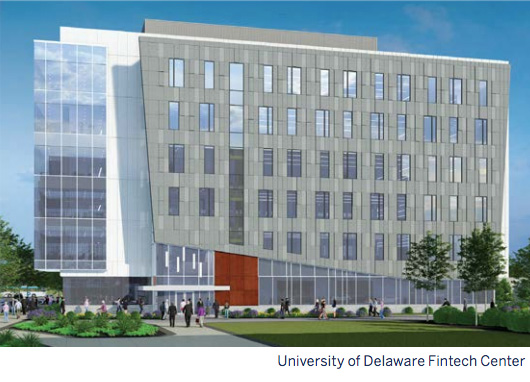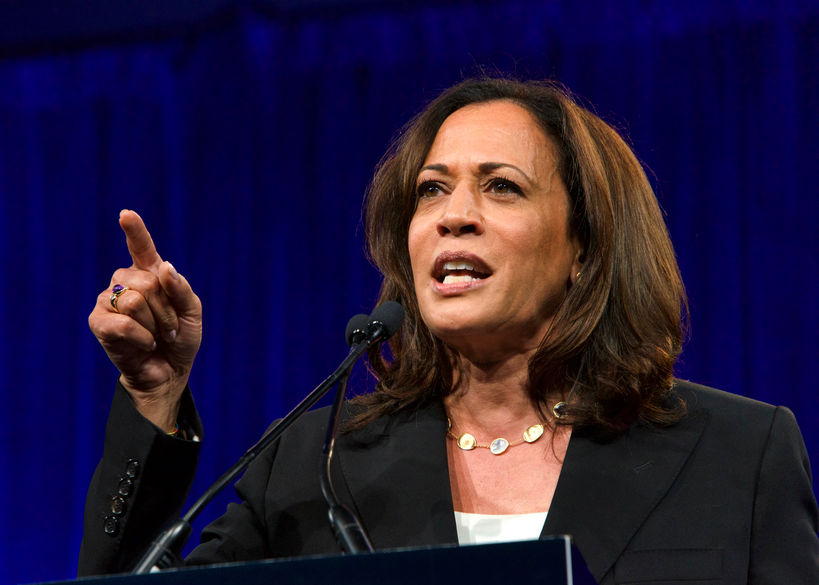Could More Free Money Be Coming to Restaurants?
April 11, 2022 The House passed a $55 billion bill on Thursday to provide assistance to restaurants that were not successful in receiving help from the federal Restaurant Revitalization Fund (RRF) last year. In a 223-203 House vote the measure was approved by lawmakers and was backed by only a few Republicans.
The House passed a $55 billion bill on Thursday to provide assistance to restaurants that were not successful in receiving help from the federal Restaurant Revitalization Fund (RRF) last year. In a 223-203 House vote the measure was approved by lawmakers and was backed by only a few Republicans.
Over $40 billion in COVID-19 assistance was approved, replenishing the fund. An additional $13 billion would be provided for other businesses that remain struggling to recover.
The Restaurant Revitalization Fund was established under the American Rescue Plan, and signed into law by President Joe Biden on March 11, 2021 which issued $28.6 billion in direct relief funds. However, three weeks after launching, the funds ran out leaving only a third to receive relief funding out of 300,000 applicants.
Recipients are not required to repay the funding as long as funds are used for eligible uses no later than March 11, 2023.
If the bill passes the Senate, the 177,000 restaurants that were approved for RRF grants but did not receive funding before the portal closed are already in line as stated by legislators.
To overcome the 60-vote threshold to end a potential prolonged debate and pass the measure, it is undetermined whether Democrats in the evenly split Senate will be able to win over at least 10 Republicans.
Despite protocols of the pandemic being lifted, restaurants are still facing the negative effects with less staff and fewer customers. According to the National Restaurant Association, 9 in 10 restaurants have fewer than 50 employees and restaurant industry sales in 2021 are down by $65 billion from 2019’s pre-pandemic levels.
The main sponsor of the bill, Rep. Earl Blumenauer, D-Ore., and Rep. Dean Phillips, cited a survey from the Independent Restaurant Coalition and stated that over 80 percent of restaurants that didn’t receive grants have reported that they are on the verge of permanent closure.
Developed and Developing Credit Markets, How Many People Are Actually Underserved or Unserved?
April 7, 2022 TransUnion recently conducted a global study, “Empowering Credit Inclusion: A Deeper Perspective on Credit Underserved and Unserved Consumers.” Both developed and developing credit markets were observed including the United States, Canada, Colombia, Hong Kong, India, and South Africa. The study further focused on the journey of credit disadvantaged consumers and how they migrate from being underserved to credit served, and the ability to gain access to additional credit opportunities. New-to-credit consumers – individuals who have opened their first product within the past two years – were not considered.
TransUnion recently conducted a global study, “Empowering Credit Inclusion: A Deeper Perspective on Credit Underserved and Unserved Consumers.” Both developed and developing credit markets were observed including the United States, Canada, Colombia, Hong Kong, India, and South Africa. The study further focused on the journey of credit disadvantaged consumers and how they migrate from being underserved to credit served, and the ability to gain access to additional credit opportunities. New-to-credit consumers – individuals who have opened their first product within the past two years – were not considered.
Among the US market, about 45 million consumers have been categorized as unserved or underserved. Approximately 8.1 million are unserved or invisible to the credit bureau while 37 million are underserved, resulting in 14% of the adult population.
In developed countries versus emerging economies there is a large contrast between what percent of the population is still credit unserved. In Canada about 7% of the adult population is unserved while Colombia’s percentage reaches 44% and India is at 63%.
Nidhi Verma, Vice President, International Research and Consulting at TransUnion stated, “…I think a lot of it has to do with, it’s not a saturated market quite yet, in terms of the presence and the availability of credit access, and consumers actually having to rely on credit or understanding the importance of private credit in their daily lives. And that’s generally the essence of a developing credit economy.”
According to the study credit migration decreased post-pandemic amongst all regions. Two cohorts of consumers were analyzed, each over a two-year time period. The first during the pre-pandemic period from March 2018 to March 2020 and the second through June 2019 to June 2021.
Around one in four consumers identified in the underserved population were becoming credit served pre-pandemic. Due to the pandemic there was a drastic halt and a cut back in lending. The migration rate of transitioning from being underserved to served from a credit perspective went down from 24% to about 22% not only in the US but within other global markets as well.
Unserved consumers are faced with a “chicken and egg conundrum” of how to get their first credit card without a credit score or credit history. Although many lenders are hesitant to extend credit to these consumers, alternative data is an option.
“Especially in the current environment, where most lenders, financial services are seeking to grow their portfolio,” said Verma, “there’s certainly a huge opportunity of acquiring these new customers that have no scores or credit history, and leveraging incorporating alternative assets, such as your rental information, such as your deposit account information, incorporating that in the underwriting strategies, so we find fewer consumers to be credit invisible.”
This is applicable for both a growth for lenders and consumers to potentially find an upward mobility with the ability to get better access to credit, financial products, and services.
“Having access to credit, without overextending, can help consumers with a financial situation in daily life and alternative data, which would be just basically one of the gateways to enable that credit score for consumers,” Verma noted.
According to Verma, TransUnion is making efforts to help those who are credit invisible be seen. “We’ve continued to invest and enable alternative data assets, solutions in each of the markets to make sure that those can be incorporated for lenders to make lending decisions in lending criteria.”
Alternative data provides an opportunity for more consumers to become visible with credit history and in the credit market. This will also ensure to underserved consumers that there are more alternative products with lower cost of credit, a key finding that lenders could leverage in their day-to-day pricing and underwriting strategies.
Clearco to Invest €100 Million into Digital-First Irish Businesses
April 6, 2022 Clearco, the world’s self-proclaimed largest e-commerce investor that provides revenue-based financing capital solutions to e-commerce businesses, is making yet another move. Directed by CEO Michele Romanow, a star in the hit TV show “Dragon’s Den,” Clearco recently announced that it will be introducing its product to Irish founders and entrepreneurs. Upon continuation to support the 15+ % growth predicted in the Irish economy in 2022, the company plans to put €100 million into digital-first Irish businesses.
Clearco, the world’s self-proclaimed largest e-commerce investor that provides revenue-based financing capital solutions to e-commerce businesses, is making yet another move. Directed by CEO Michele Romanow, a star in the hit TV show “Dragon’s Den,” Clearco recently announced that it will be introducing its product to Irish founders and entrepreneurs. Upon continuation to support the 15+ % growth predicted in the Irish economy in 2022, the company plans to put €100 million into digital-first Irish businesses.
An international sales and business development hub has been developed in Dublin. The Clearco team currently consists of 75 members with a plan of adding 125 employees in the future. This will support Clearco’s plan to grow in Europe, North America and Asia Pacific in 2022.
This year Clearco plans to expand its products and services within current European operations and into new key markets across the continent. This includes Western Europe, Central Europe and the Nordic region.
 Clearco has invested over $3.2 billion globally into 7,000+ businesses across three continents. Ireland is the fourth international market for Clearco. To be able to serve as many founders as possible internationally, the creation and development of its sales and development team is key.
Clearco has invested over $3.2 billion globally into 7,000+ businesses across three continents. Ireland is the fourth international market for Clearco. To be able to serve as many founders as possible internationally, the creation and development of its sales and development team is key.
Romanow stated “Clearco is excited to bring our revenue-based funding model to Irish founders. Ireland has one of Europe’s strongest economies and a dynamic start-up sector. We are confident that we will have a meaningful impact on the Irish e-commerce economy. Clearco is excited to establish this International Sales hub in Ireland to support our growth in the EMEA region. We’re impressed by the talent and tech skills here and I look forward to building the team to serve our growing customer base.”
Businesses in all 50 states have been funded by Clearco within the US market. However, over half of the company’s funding goes to businesses outside of California, New York, Illinois and Massachusetts, which received about 70%. Clearco believes the same trends will be seen in the Irish marketplace as they hope to help fund traditionally underserved communities.
University of Delaware Fintech Building Calls for $6.5 Million to Complete
April 3, 2022 In 2020 the University of Delaware began the construction of a new Fintech Center on its Science, Technology, and Advanced Research (STAR) campus. Cinnaire, a community building company, supported the development of the new 100,000-square-foot-building with a New Markets Tax Credit investment.
In 2020 the University of Delaware began the construction of a new Fintech Center on its Science, Technology, and Advanced Research (STAR) campus. Cinnaire, a community building company, supported the development of the new 100,000-square-foot-building with a New Markets Tax Credit investment.
The financial services technology building is expected to be completed by November of this year. The University’s President Dennis Assanis is asking the state legislature for $6.5 million to furnish and equip the establishment.
Assanis stated, “Construction of the building is only the first step. It needs about $14 million in fit-out-in partitions and cabling, in wiring and furnishings, in other work to make it suitable for occupancy and to have the labs that we need in the building.”
Three million dollars has already been provided by the state through the Higher Education Economic Development Fund along with $4.5 million from industry partners.
This new space on campus will serve as an economic driver for the state. According to Assanis, “The extensive investments that the university is making are helping to drive progress in healthcare, in engineering, in business, and many other areas that would benefit Delawareans today and for many years to come.”
The building is owned by the Delaware Technology Park (DTP) and will hold a partnership along with UD and Discover Bank. DTP will fund it with a below-market-rate loan from Discover.
Other tenants will include NIIMBL workforce development; Discover Bank; the Kendal Corporation, a senior living company; Financial Health Network, a nonprofit research organization; The Venture Center, a national Fintech incubator; Tech Impact, a nonprofit digital workforce development organization; RAAD360, a supply chain IT startup; and Grain Exchange, a new restaurant from Grain Craft Bar + Kitchen.
deBanked is Holding Auditions for First Musical
April 1, 2022April Fools 22

 deBanked is thrilled to announce that we will be producing our first musical this summer, A Broker’s Life, a fun and witty twist on the life of a broker while still focusing on everyday reality.
deBanked is thrilled to announce that we will be producing our first musical this summer, A Broker’s Life, a fun and witty twist on the life of a broker while still focusing on everyday reality.
Calling all brokers with dance and/or singing experience! Seeking strong male and female dancers with a ballet/modern dance background. At least 2 years of ballet training is a requirement. Training in tap is a plus! Please wear form fitting clothing appropriate for dancing. Ballet, jazz shoes or bare feet is acceptable for the choreography portion of the audition. Tap shoes must be worn when necessary.
For the singing section please prepare your best 16 bars (approximately 30 seconds with sheet music) accompanied by a jazz or contemporary song about funding small businesses that showcases your vocal range.
 We are looking to cast roles of brokers, lenders and extras. The lead broker role must be able to dance and sing. The lead will need to perform multiple solo variations along with vocal pieces. Looking for big personalities, with a large stage presence. Lead casting director John Remming, producer Dean Louis and choreographer Larissa Brulato will be viewing and judging all audition tapes.
We are looking to cast roles of brokers, lenders and extras. The lead broker role must be able to dance and sing. The lead will need to perform multiple solo variations along with vocal pieces. Looking for big personalities, with a large stage presence. Lead casting director John Remming, producer Dean Louis and choreographer Larissa Brulato will be viewing and judging all audition tapes.
Please send us an email with a link to your video to info@debanked.com containing the following:
- Video of yourself performing six eight counts of ballet/modern improvisation, incorporate technique in your variation such as grand jeté battement, pirouette and pirouette a la seconde.
- For the tap portion, improvisation for three counts of eight is acceptable.
- Utilize spacial variety, do not remain stationary.
- If you are auditioning for a singing role, audio in video must be clear.
- Facial expressions for the stage are encouraged.
- Your current headshot and resume as PDF attachments.
Email submissions are due by April 25th.
Second call auditions will be held in person with a dress rehearsal. Costumes and makeup artists will be provided upon call time.
Performer at heart? Think this is the role for you? Apply now to become the musical face of deBanked!
April Fools!
Women Discuss Strategies to Grow Their Businesses
March 30, 2022 The U.S. Small Business Administration (SBA) held its 2022 Women’s Business Summit this week. The summit was a two-day event that consisted of virtual panels, workshops and fireside chats. The event was held in co-sponsorship with the Nasdaq Entrepreneurial Center.
The U.S. Small Business Administration (SBA) held its 2022 Women’s Business Summit this week. The summit was a two-day event that consisted of virtual panels, workshops and fireside chats. The event was held in co-sponsorship with the Nasdaq Entrepreneurial Center.
Remarks were made by United States Vice President Kamala Harris, along with other notable panelists. Harris stated, “Women small business owners power the economy of our nation.”
“Women small business owners face many unique challenges, many lack access to paid leave, affordable child care and the capital to grow,” Harris made clear.
Harris noted, “Through SBA we have opened women business centers in every state of our country, 141 in total.” These centers connect women business owners with the tools and resources to succeed. Kamala later declared that the fight to pass legislation for women for affordable child care and paid leave will continue.
During the Innovation and Investment panel, Marianne Markowitz, CEO of First Women’s Bank, discussed how there is a gender gap in the lending market.
“We launched last year as the only women-founded, women-owned bank in the country that’s focused on closing the gender lending gap at a national level,” said Markowitz.
 Women only receive 2% of all the investments in America. Markowitz discussed that women are being introduced to the wrong loans and capital. Many women are relying on personal credit and sometimes lean on equity at the wrong stage of their business. Markowitz provides women with the proper education to make the right choice, fully understand and be prepared for when they apply for loans.
Women only receive 2% of all the investments in America. Markowitz discussed that women are being introduced to the wrong loans and capital. Many women are relying on personal credit and sometimes lean on equity at the wrong stage of their business. Markowitz provides women with the proper education to make the right choice, fully understand and be prepared for when they apply for loans.
Mekaelia Davis, Director of Inclusive Economies, Surdna Foundation, explained how the consolidation of the banking industry has removed a great amount of financial institutions. This has had a negative impact on relationships with financial partners, leading to more predatory actions online taking the place of financial institutions.
“New York City Small Business Founder Collective estimated there is nearly annually $45 billion of unmet capital, most demand coming from Bronx, Eastern Brooklyn, Queens,” according to Davis.
Susan Au Allen, CEO and National President of the U.S. Pan Asian American Chamber of Commerce explained that even if women are educated they are not aware of all of the services that the SBA offers.
“For the Asian American community and the women community it is a structural problem, a systemic structural obstacle that we have faced,” Allen asserted.
The Associate Administrator of SBA’s Office of Investment and Innovation, Bailey DeVries, described what they have done for small business, “We have provided over $100 billion worth of small business through the SBIC program and currently manage over $34 billion worth of assets through those partnerships.”
The summit provided women with an opportunity to become further educated on how to succeed in their small businesses.
The SBA’s 2022 Women’s Business Summit is Fast Approaching
March 7, 2022 In honor of Women’s History Month, the US Small Business Administration (SBA) will host it’s 2022 Women’s Business Summit on March 28-30. It will include virtual panels, “Ask an Expert” workshops and fireside chats. In-person salon/listening sessions will be held by local and regional hosts. The goal is to help women-owned small businesses grow and thrive.
In honor of Women’s History Month, the US Small Business Administration (SBA) will host it’s 2022 Women’s Business Summit on March 28-30. It will include virtual panels, “Ask an Expert” workshops and fireside chats. In-person salon/listening sessions will be held by local and regional hosts. The goal is to help women-owned small businesses grow and thrive.
The event will be held by the SBA’s Office of Women’s Business Ownership (OWBO) in co-sponsorship with the Nasdaq Entrepreneurial Center. Established in 1979 in response to an executive order, the Office of Women’s Business Ownership has encouraged women entrepreneurs to be active participants in the economy. It is specifically aimed at those who have been historically under-served or excluded.
Women have made great progress in growing businesses and jobs throughout the past few decades but challenges still remain. The SBA recognizes the significance of creating opportunities for women. In October of 2010 the SBA launched a summit series focused on women entrepreneurs that started with a kickoff event at the White House.
Isabella Casillas Guzman, Administrator of the SBA, will be presenting the Summit. Guzman previously served as Director of the California Office of the Small Business Advocate. In this role she served as the voice of small business and innovative startups in the 5th largest economy in the world. Guzman and her team connected entrepreneurs in every community with the necessary resources.
Natalie Madeira Cofield, Assistant Administrator of the Office of Women’s Business Ownership, SBA, will be speaking as well, along with a representative from the Nasdaq Entrepreneurial Center and other notable speakers and business leaders that have not yet been confirmed.
Previous speakers have included Rola E. Chami, Diane Winston, Sonia Alvelo, Kasey Corsello and others.
The 2022 Women’s Business Summit will present women entrepreneurs with the tools necessary to be successful within their businesses.
NJEDA Approves Grants to Support Micro Business Lenders
February 16, 2022 Last week, the New Jersey Economic Development Authority (NJEDA) endorsed the construction of the Main Street Lenders Grant.
Last week, the New Jersey Economic Development Authority (NJEDA) endorsed the construction of the Main Street Lenders Grant.
Eligible micro business lenders will be offered up to $1 million that can be used to create new lending products or as supplemental funding for existing products. The Main Street Lenders Grant is the third product the NJEDA plans to launch under the Main Street Recovery Program. The $100 million small business support program was created under the Economic Recovery Act of 2020 (ERA) and was signed by Gov. Phil Murphy in January of 2020.
The technical assistance grant will support those who qualify with the costs associated with providing technical assistance to micro businesses, aiding these businesses to qualify for loans. The maximum grant one can receive is 50 percent of their lending grant amount (not to exceed $500,000).
The second product under the Main Street Recovery Program is the Small Business Improvement Grant, with applications now open as of Thursday. This product will reimburse eligible small businesses and nonprofits for up to 50 percent of eligible project costs associated with building improvements or purchases.
“Small businesses are the backbone of New Jersey,” stated Governor Phil Murphy. “This program will allow small businesses and nonprofits throughout our state to make the investments necessary for their success and for improvements to their spaces.”






























